‘Incorrect’: PM mocks RBA boss
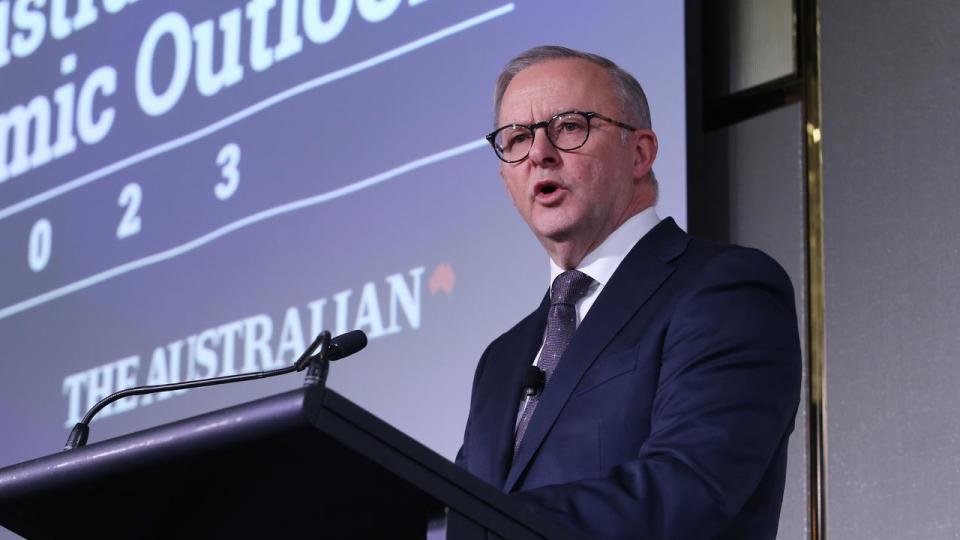
Anthony Albanese has dodged a question about Philip Lowe’s future as the expiry of the Reserve Bank governor’s seven-year term looms.
The Prime Minister was tight-lipped on whether the government would reappoint Dr Lowe as governor when his term expires in September as he fielded questions about interest rates at a business event on Friday.
He also took a dig at Dr Lowe when he was asked to explain why there was an apparently incorrect prediction about interest rates in the federal budget papers the government delivered in May.
Mr Albanese made the remarks after delivering the keynote address at the Australia’s Economic Forum event hosted by The Australian newspaper and Sky News Australia in Sydney.
During a question-and-answer session following his speech, Mr Albanese was asked why the May budget papers predicted the cash rate would stay at 3.85 per cent “when that’s wrong a month later”.
Mr Albanese responded, “Well, that’s a question for the Treasury Department. And I’m sure (department secretary Steven) Kennedy will be able to answer that.”
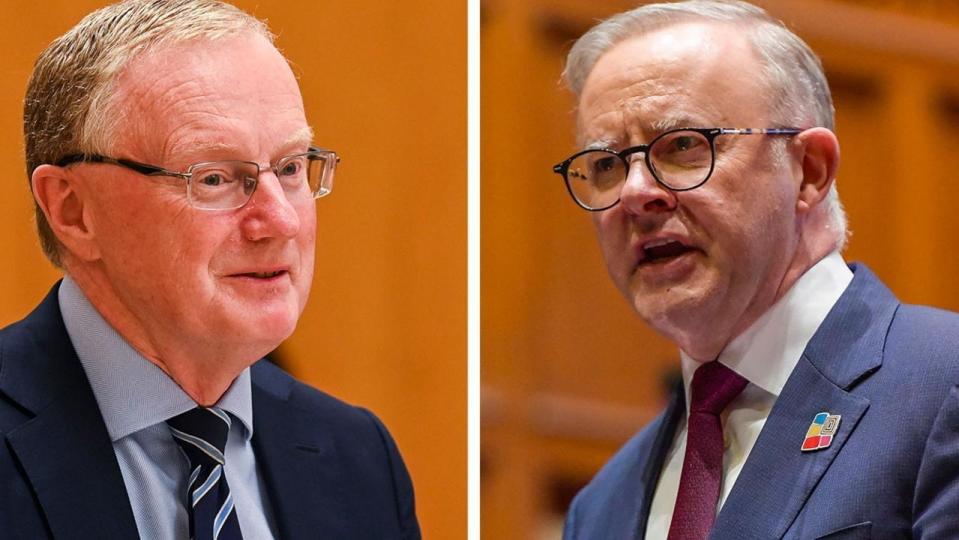
The Reserve Bank raised the cash rate – which guides interest rates set by lenders – by 0.25 per cent to an 11-year high of 4.1 per cent at its meeting on Tuesday.
It was the 11th rate hike since Mr Albanese became prime minister in May last year during the early stages of Australia’s inflation crisis.
Mr Albanese on Friday stressed – as he and other senior government figures routinely do – that the Reserve Bank of Australia made its decisions independently of the government.
He continued his response to the question about the apparent budget error with what appeared to be lighthearted – if unprompted – gibe directed at Dr Lowe.
“That’s not the only prediction on interest rates that have not been correct. It’s not as incorrect as the ones saying there’d be no increases till 2024, so these things are all relative,” he said.
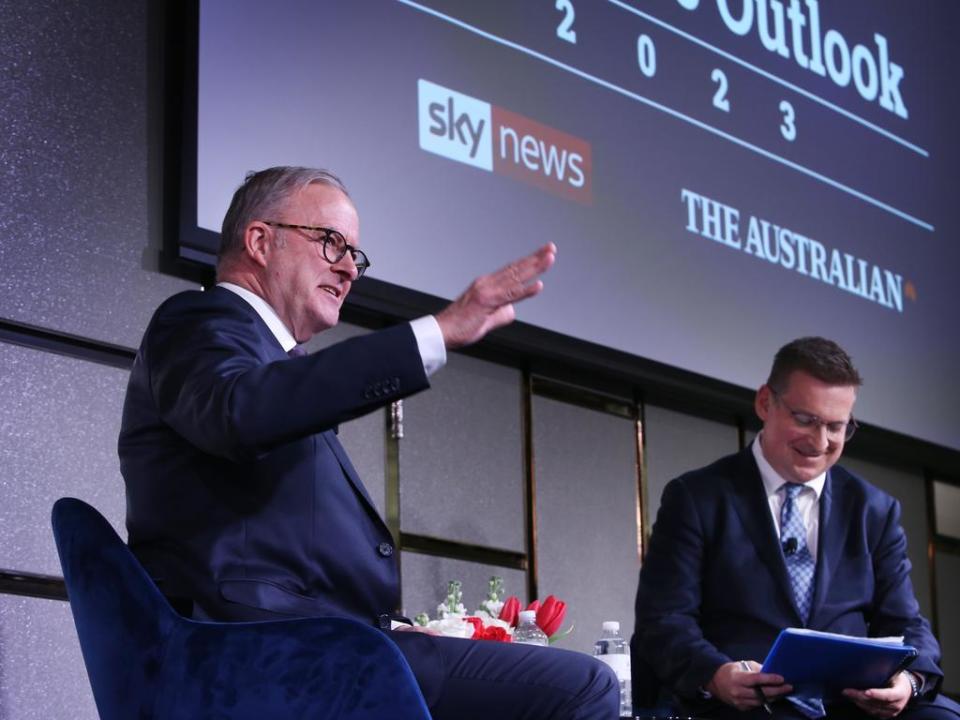
Mr Albanese was referring to Dr Lowe’s now-infamous prediction that interest rates would remain at the historic low they were set to during the pandemic-induced economic downturn for much longer than they did.
Sky News Australia political editor Andrew Clennell, who was hosting the question-and-answer session, responded to Mr Albanese: “The way that you’ve mentioned that – is he gone then, Philip Lowe?”
While Mr Albanese didn’t say no, he didn’t answer the question directly, instead joking that he wouldn’t give Sky News the exclusive story in the middle of the business luncheon.
“Well, as much as I love Sky News during the day – before weird stuff happens as the dark comes down, I’ve got to say,” Mr Albanese joked, in reference to the Sky News after dark programming that often features conservative and sometimes controversial pundits.
“As much as I love Sky, you’re not getting that exclusive here,” Mr Albanese said
Dr Lowe’s time as RBA governor is expected to end in September when his seven-year term expires.
His reappointment or the appointment of his successor will be the federal government’s decision.
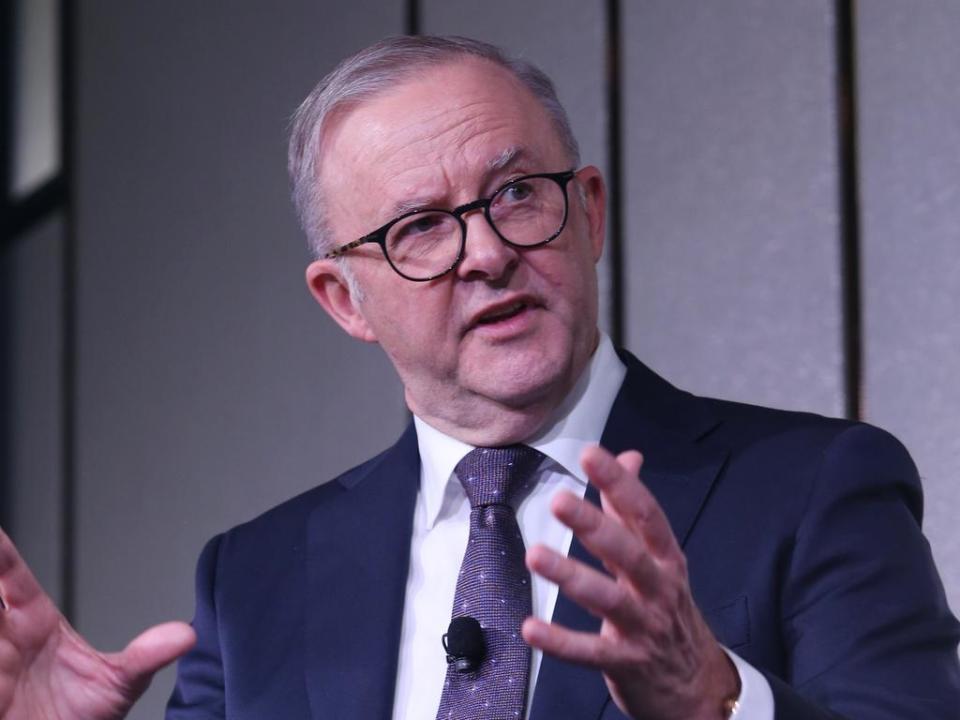
Mr Albanese was similarly coy when he was asked if he had plans for taxation reform or further industrial relations changes should he win another term in office.
He said Labor would “wait” until closer to the next federal election to announce its agenda for a potential second term in government.
He added he wasn’t contemplating calling an early election, saying three years “isn’t enough” time in government.
The next national poll is slated for sometime in 2025.
Opposition Treasury spokesman Angus Taylor released a statement criticising Mr Albanese’s appearance at the event, accusing him of “blame shifting” instead of having a growth plan for the economy.
“Asked on interest rates, the Prime Minister blamed the RBA Governor,” Mr Taylor said.
“After a year in office, interest rates have risen 11 times, yet asked on interest rate forecasts, the Prime Minister said they’d been wrong before and could be wrong again.
“You can’t run an economy on wishful thinking.”
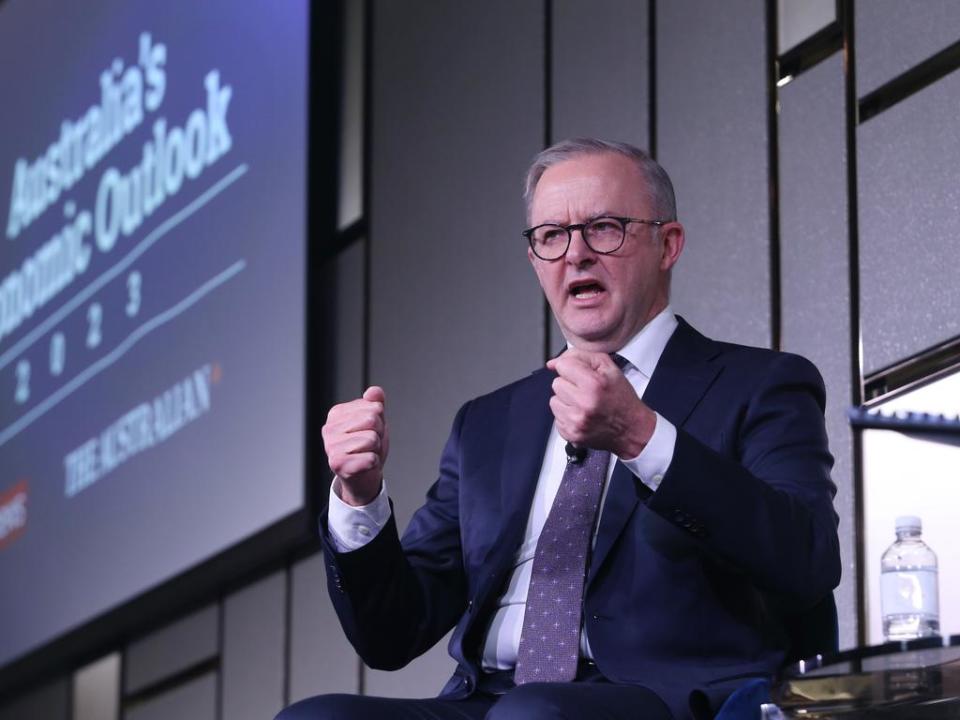
In his speech at the business event earlier on Friday, Mr Albanese said his government intended to act with both urgency and optimism to seize the rare economic opportunities of the moment.
He identified what he described as Australia’s three major strengths in 2023: the competitive advantage and natural resources to become a “clean energy superpower”, an adaptable workforce with the skills to embrace new technologies, and instinctive compassion, respect and care for one another.
“That makes this the greatest country on Earth,” Mr Albanese said.
“These are the strengths our budget builds on … They are the reasons for optimism and our urgency because I’ve always believed that Australians have what it takes to shape the future.”
Mr Albanese named Australia’s recent achievements as attracting record new levels of international investment in clean energy projects, diversifying future exports, shoring up supply chains and encouraging the “respectful, equal and full” participation of women in the workforce.
“In so many of these fields, business has been ahead of government over the past decades,” he said.
“And I think a big part of the reason that we’re making national progress is because finally government is working with business rather than holding it back.”

 Yahoo Finance
Yahoo Finance 